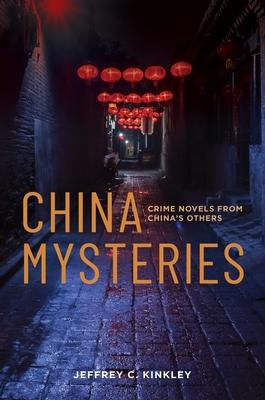With the 1989 Beijing massacre fading from popular memory in the West, China from the mid-1990s to a few years ago felt more open than ever to global trade, communication, travel, and cultural and educational exchanges. There was even talk in the mainstream press that China was heading toward a more democratic future. It was during this second Sino-Western honeymoon that authors in the US, Canada, France, the UK, and elsewhere began writing mystery fiction set in contemporary China in their regional languages. These "China mysteries"--crime, detective, and mystery thriller novels that take place in China but were not written or published there--formed a new genre of popular fiction that highlighted the world's hopes and fears after Tiananmen. The multinational and multicultural writers of China mysteries, among them ex-PRC nationals like Qiu Xiaolong, Zhang Xinxin, and Diane Wei Liang, converged on the China Mainland to negotiate political and cultural complexities through crime fiction plotlines. Their books emerged from Western lineages of the modern novel and popular genre fiction--with Chinese contributions--and depended on Western commercial publishing models shaped by cultural, national, political, and economic factors.
This work examines more than a hundred China mysteries--many describing and analyzing social and economic changes at the center of modern life in China--to provide a brief history of the genre and analyze the formulaic and original elements of the mysteries, including their attention to matters of location, social content, characterization, history, and biography. It also highlights the role of "information" acquisition as a motivation for readers and authors of popular fiction, which has become a topic of discussion in Chinese literature studies. With its timely commentary on Sino-Western relations as presented through crime fiction, China Mysteries will appeal to students and scholars of contemporary Chinese literature and culture, as well as fans of crime novels and others who are curious about the global dimensions of the genre and how it complicates our understanding of "world literature."
China Mysteries: Crime Novels from China's Others
With the 1989 Beijing massacre fading from popular memory in the West, China from the mid-1990s to a few years ago felt more open than ever to global trade, communication, travel, and cultural and educational exchanges. There was even talk in the mainstream press that China was heading toward a more democratic future. It was during this second Sino-Western honeymoon that authors in the US, Canada, France, the UK, and elsewhere began writing mystery fiction set in contemporary China in their regional languages. These "China mysteries"--crime, detective, and mystery thriller novels that take place in China but were not written or published there--formed a new genre of popular fiction that highlighted the world's hopes and fears after Tiananmen. The multinational and multicultural writers of China mysteries, among them ex-PRC nationals like Qiu Xiaolong, Zhang Xinxin, and Diane Wei Liang, converged on the China Mainland to negotiate political and cultural complexities through crime fiction plotlines. Their books emerged from Western lineages of the modern novel and popular genre fiction--with Chinese contributions--and depended on Western commercial publishing models shaped by cultural, national, political, and economic factors.
This work examines more than a hundred China mysteries--many describing and analyzing social and economic changes at the center of modern life in China--to provide a brief history of the genre and analyze the formulaic and original elements of the mysteries, including their attention to matters of location, social content, characterization, history, and biography. It also highlights the role of "information" acquisition as a motivation for readers and authors of popular fiction, which has become a topic of discussion in Chinese literature studies. With its timely commentary on Sino-Western relations as presented through crime fiction, China Mysteries will appeal to students and scholars of contemporary Chinese literature and culture, as well as fans of crime novels and others who are curious about the global dimensions of the genre and how it complicates our understanding of "world literature."